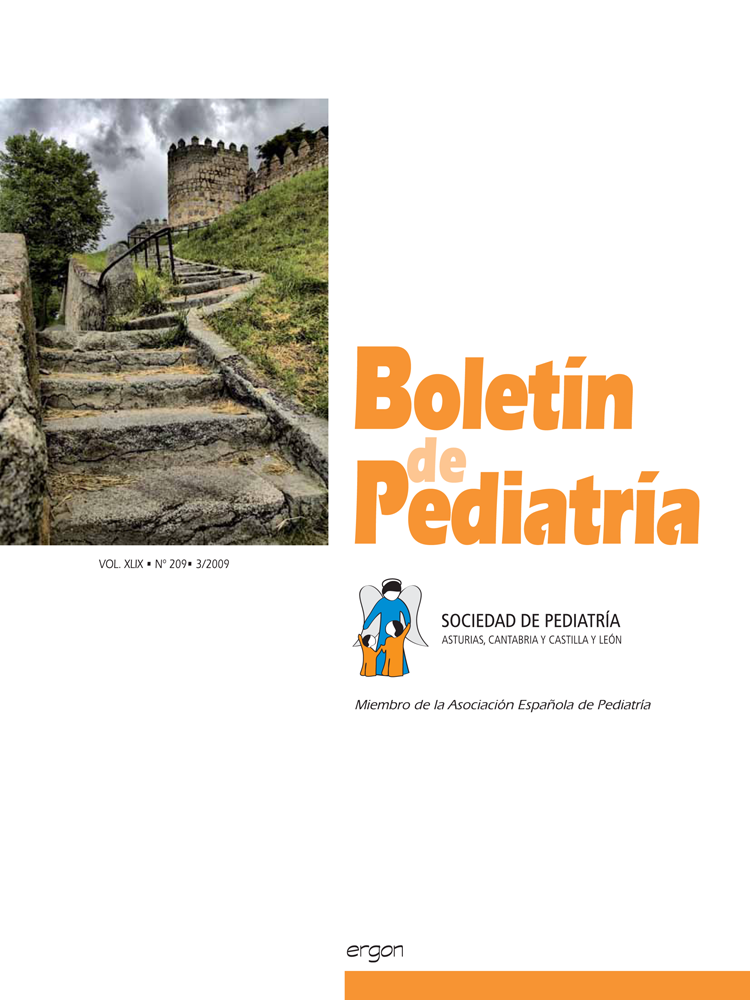Abstract
Alpha-1 antitrypsin is an inhibitor of the protease of the neutrophils. Alpha-1 antitrypsin deficiency is a genetic disorder caused by the alteration of the gene in chromosome 14 which codifies this protein. Clinical manifestations may vary: neonatal cholestatic hepatitis, jaundice, hypertransaminasemia or even childhood cirrhosis. Diagnosis is based on alpha-1 antitrypsin levels and it is confirmed by the phenotype of the protein (electrophoresis) and genetic study.
We describe the case of a six weeks old infant seen in our emergency department due to a haematoma surrounding a vaccine puncture point. Blood analysis revealed a coagulopathy associated to cholestatic hepatitis. The levels of alpha-1 antitrypsin were 54 mg/dl and the phenotype was Pi SZ. He was treated with recombinant factor VIIa, fat soluble vitamins and ursodeoxicolic acid, with a good evolution.
Neonatal jaundice may indicate cholestasis, so in a newborn with persistent jaundice a measurement of the serum total and conjugated bilirubin is mandatory.

This work is licensed under a Creative Commons Attribution-NonCommercial 4.0 International License.
Copyright (c) 2009 Boletín de Pediatría
